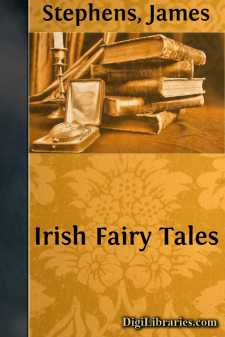Categories
- Antiques & Collectibles 13
- Architecture 36
- Art 48
- Bibles 22
- Biography & Autobiography 816
- Body, Mind & Spirit 145
- Business & Economics 28
- Children's Books 17
- Children's Fiction 14
- Computers 4
- Cooking 94
- Crafts & Hobbies 4
- Drama 346
- Education 58
- Family & Relationships 59
- Fiction 11834
- Foreign Language Study 3
- Games 19
- Gardening 17
- Health & Fitness 34
- History 1378
- House & Home 1
- Humor 147
- Juvenile Fiction 1873
- Juvenile Nonfiction 202
- Language Arts & Disciplines 89
- Law 16
- Literary Collections 686
- Literary Criticism 179
- Mathematics 13
- Medical 41
- Music 40
- Nature 179
- Non-Classifiable 1768
- Performing Arts 7
- Periodicals 1453
- Philosophy 66
- Photography 2
- Poetry 897
- Political Science 203
- Psychology 45
- Reference 154
- Religion 516
- Science 126
- Self-Help 85
- Social Science 82
- Sports & Recreation 34
- Study Aids 3
- Technology & Engineering 59
- Transportation 23
- Travel 463
- True Crime 29
Our website is made possible by displaying online advertisements to our visitors.
Please consider supporting us by disabling your ad blocker.
Irish Fairy Tales
by: James Stephens
Categories:
Description:
Excerpt
CHAPTER I
Finnian, the Abbott of Moville, went southwards and eastwards in great haste. News had come to him in Donegal that there were yet people in his own province who believed in gods that he did not approve of, and the gods that we do not approve of are treated scurvily, even by saintly men.
He was told of a powerful gentleman who observed neither Saint's day nor Sunday.
"A powerful person!" said Finnian.
"All that," was the reply.
"We shall try this person's power," said Finnian.
"He is reputed to be a wise and hardy man," said his informant.
"We shall test his wisdom and his hardihood."
"He is," that gossip whispered—"he is a magician."
"I will magician him," cried Finnian angrily. "Where does that man live?"
He was informed, and he proceeded to that direction without delay.
In no great time he came to the stronghold of the gentleman who followed ancient ways, and he demanded admittance in order that he might preach and prove the new God, and exorcise and terrify and banish even the memory of the old one; for to a god grown old Time is as ruthless as to a beggarman grown old.
But the Ulster gentleman refused Finnian admittance. He barricaded his house, he shuttered his windows, and in a gloom of indignation and protest he continued the practices of ten thousand years, and would not hearken to Finnian calling at the window or to Time knocking at his door.
But of those adversaries it was the first he redoubted.
Finnian loomed on him as a portent and a terror; but he had no fear of Time. Indeed he was the foster-brother of Time, and so disdainful of the bitter god that he did not even disdain him; he leaped over the scythe, he dodged under it, and the sole occasions on which Time laughs is when he chances on Tuan, the son of Cairill, the son of Muredac Red-neck.
Now Finnian could not abide that any person should resist both the Gospel and himself, and he proceeded to force the stronghold by peaceful but powerful methods. He fasted on the gentleman, and he did so to such purpose that he was admitted to the house; for to an hospitable heart the idea that a stranger may expire on your doorstep from sheer famine cannot be tolerated. The gentleman, however, did not give in without a struggle: he thought that when Finnian had grown sufficiently hungry he would lift the siege and take himself off to some place where he might get food. But he did not know Finnian. The great abbot sat down on a spot just beyond the door, and composed himself to all that might follow from his action. He bent his gaze on the ground between his feet, and entered into a meditation from which he would Only be released by admission or death.
The first day passed quietly.
Often the gentleman would send a servitor to spy if that deserter of the gods was still before his door, and each time the servant replied that he was still there.
"He will be gone in the morning," said the hopeful master.
On the morrow the state of siege continued, and through that day the servants were sent many times to observe through spy-holes....




